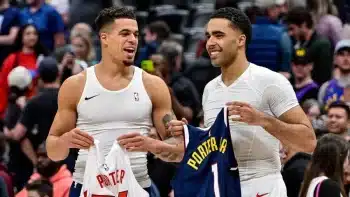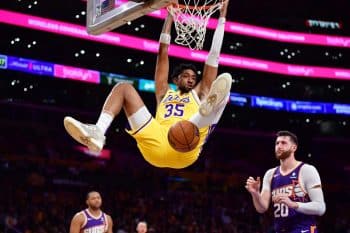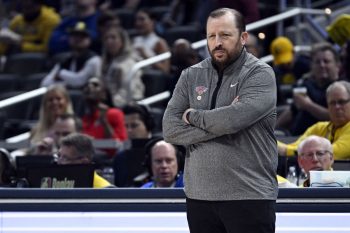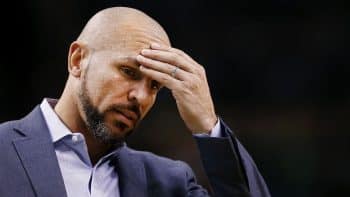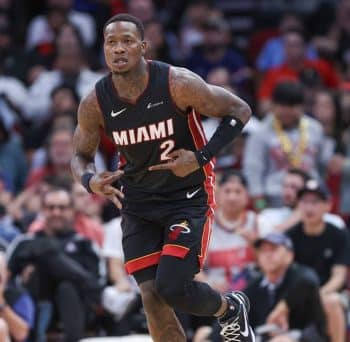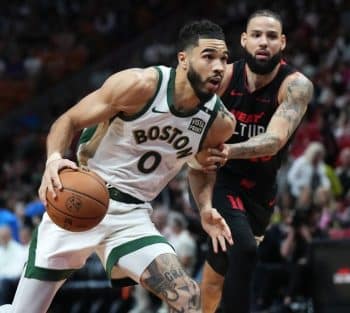NBA
The Cavaliers Hope Larry Sanders Is Ready
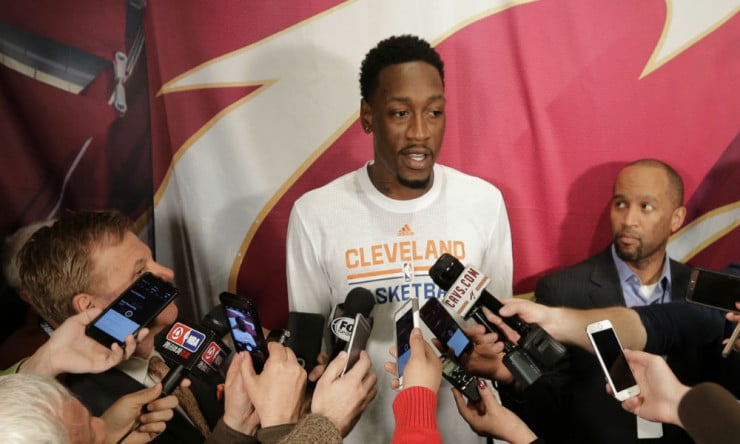
When the Cleveland Cavaliers announced the signing of Andrew Bogut on March 2, most thought that LeBron James and company had guaranteed their place in the 2017 NBA Finals. Adding Bogut helped to solidify the interior for the Cavaliers and added some fuel to the fire that exists between them and the Golden State Warriors. Bogut was, after all, one of his former team’s lynchpins.
Unfortunately, Bogut’s career as a Cavalier would last all of one minute. In a heap, the big man went down after fracturing his left tibia. Perhaps cold-heartedly, but understandably, the Cavs wasted no time in waiving Bogut and signing free agent center Larry Sanders.
Yes, that Larry Sanders.
Now, with him, the Cavaliers will begin quite an experiment. That the club is depending on him in a somewhat major way makes his signing quite interesting. But probably not more interesting than the exclusive interview that Sanders granted Basketball Insiders almost exactly a year ago.
There, Sanders discussed a wide-range of topics, including a potential return to the NBA.
But in the end, will any of it matter? Will we remember Larry Sanders for what he will contribute to the Cavs this season? Was signing him the right move?
In this case, perhaps more than any other, only time will tell.
* * * * * *
At just 28 years old, despite spending two years away from the game, Sanders is a “no-brainer” of an addition. With his length, timing and agility, Sanders was such a difference maker for the Milwaukee Bucks that the club opted to sign him to a four-year, $44 million extension in August 2013. Less than 18 months later, though, he was out of the league.
Isaiah Thomas and scores of other “undersized” players have long bucked the familiar trend, but make no mistake about it—size matters, and it also can’t be taught.
From an early age, the tallest kids are expected to play basketball. Scouring the history of the past 10 NBA drafts will reveal at least two dozen seven-foot players who were short in talent. Being long in length is what got them to this point.
As you observe NBA players and spend time around them, it becomes quite easy to tell which players are in the league because they truly love the game of basketball and which ones are there because it’s a fun and glamorous way for them to earn a nice check. Rest assured, when you’re in an NBA locker room, there are usually less than 10 guys around that would be playing basketball if it meant that they would only earn $75,000 per year.
With all due respect to Sanders, at the very least, his past can fairly lead to questions surrounding not only his motivation for playing the game, but his return. He has been consistent in declaring his love for the game, but he has also been up front about the obstacles and challenges he has encountered.
In February 2015, Sanders appeared in a video published by the Players’ Tribune wherein he identified himself as “a father, an artist, a writer, a painter [and] a musician” before finishing up by adding that he “sometimes” plays basketball. In the video, Sanders revealed that he left the game behind because he was facing some mental issues, including anxiety, depression and mood disorders.
There’s no question that Sanders deserves a tremendous amount of credit. Revealing the source of his departure from the game took courage, but it also will empower others who face similar issues to face them and accept them rather than imagine that they don’t exist. The unfortunate truth is that locker rooms are a place where hegemonic masculinity reigns supreme. It’s difficult enough for “everyday people” to accept their shortcomings, much less a rich athlete who is being depended upon by a city, a fan base, a franchise and family.
“It’s not that worth it,” Sanders said of playing professional basketball during a time where he felt that things around him were crumbling.
In the aforementioned interview with Basketball Insiders, Sanders said that being away from the game allowed him to observe from afar. According to him, a tremendous amount of NBA teams could use the skill set he displayed when he was in the league.
The Cleveland Cavaliers sure hope he’s right.
In many cases, when players spend extended time away from the game, their ability to be productive is compromised. Basketball is a game of instinct and timing. You have to have a knack for certain things. You have to be able to “feel” your way around a court and understand how you can be most impactful—that’s certainly true of perimeter players and especially true of big men.
The most natural question that most would ponder with Sanders’ return, after reading the interview that he did with this publication and watching the Players’ Tribute video, is whether or not the issues that caused him to decide that he would rather have his freedom than to be bound by the covenants of an NBA contract have been resolved. Perhaps a better question is whether it was the rigors of being a professional basketball player that caused Sanders to want to leave in the first place. As a class, NBA players are told where to go, when to go, when to report and, in a way, when they can see and spend time with their families.
Without knowing the culture in Milwaukee during Sanders’ five years there, it’s difficult to imagine that it would be any less demanding than what awaits him in Cleveland. The Cavs are defending NBA Champions who are driven by LeBron James and his want to leave a lasting legacy on the game. He, head coach Tyron Lue and an entire city will be looking to Sanders to be a part of something that is as important as it is special. And if he’s lucky, after helping the Cavaliers to a third consecutive NBA Finals, the Western Conference Champion will await. For someone who’s never been on a winning team and has just four career playoff games under his belt, it will be baptism by fire.
On the positive side, at just 28 years old, there’s no doubt that Sanders’ tires still have a tremendous amount of tread. But the physical aspect of the game was never an issue for the young big man. It was everything else.
By returning to the NBA, Sanders, as least passively, is claiming to be ready to resume his career. By bringing him in, with the expectations and challenges that await, the Cavaliers are taking a monumental risk. They’re putting a lot of stock in Sanders’ being correct about being ready to accept what he will face.
Somewhere, LeBron James is hoping that Sanders was right about being ready. And truth is, because of the success story that could be told of an in-prime athlete accepting his issues, admitting them, seeking help and conquering them, on a personal level, so am I.
